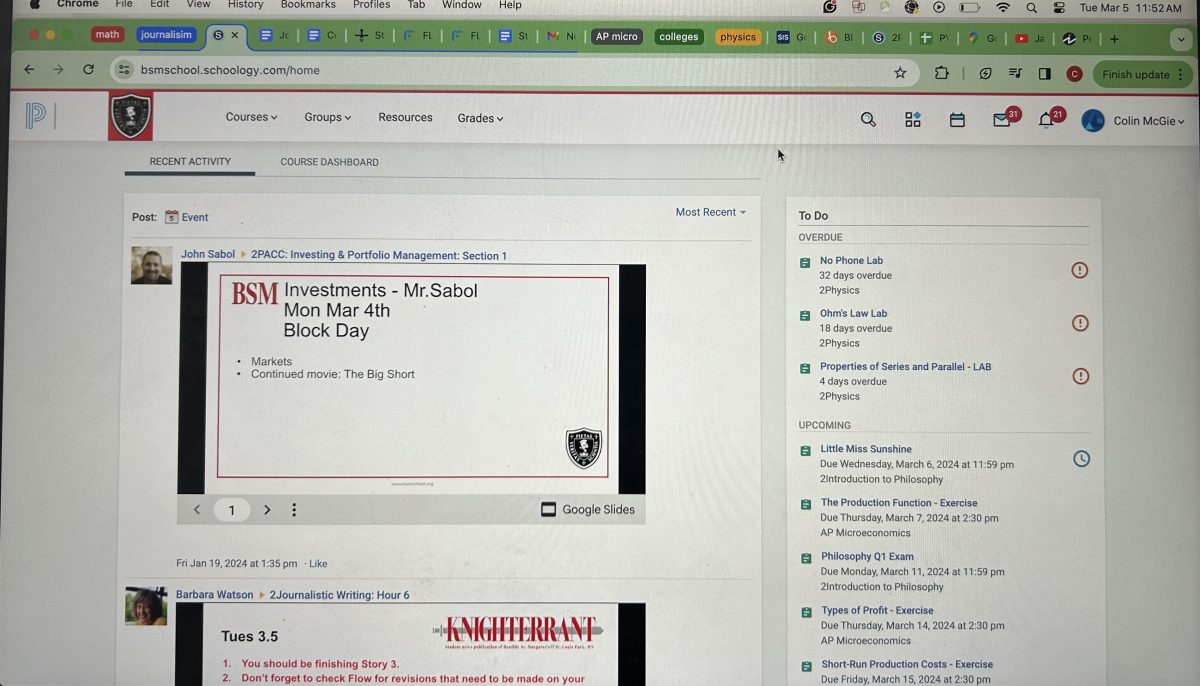The downside of women in the infantry
Whether or not women should be allowed in the infantry has always been an important issue to me. I have been following this issue closely since 2013 when Leon Panetta, then the Secretary of Defense, mandated that all combat jobs that had been closed to women be opened. I have watched as an observer for the last couple of years, and have seen many, especially those in the veteran community, become very divided on this issue. Now this division seems to have reached the top level, with the Army promising to open all combat jobs to women, while the Marine Corps, under Joe Dunford, has petitioned to exclude women from all combat jobs.
Recently I had the opportunity to interview three former soldiers who are also members of the BSM community about their opinions regarding this issue. With the deadline for gender integration drawing nearer are nearer, and after a lot of thinking about whether or not I should publish my opinion, I think the time has finally come to explain my point of view.
I personally have no moral issue with women serving in combat, and I honestly think that it would be possible to institute women into the field artillery or similar fields, but I think having women in the infantry will be incredibly detrimental to the combat effectiveness of the units stationed most directly in harm’s way.
There is proof that gender-integrated infantry units do not perform to the standard of all-male units, and it is also a fact that zero out of 29 women have passed the Marine Corps’ Infantry Officer Course, which normally has around a 20% attrition rate for men. These are facts, and it puzzles me that people still intend to allow women into the infantry in spite of them.
For the already fiscally strained military, this will lead to an increase in medically retired Marines who rate medical financial support for the rest of their lives.
— Captain Katie Petronio
This change aims to fix something that isn’t broken in an already downsizing force. It aims to put women into infantry who cannot endure the infantry lifestyle as long, who get injured at a much higher rate, and who because of these things also cost the military more money in the long run––not to mention the detriment to unit cohesion brought about by the need for separate facilities.
And it’s not like I’m just saying this, Captain Katie Petronio, Captain Laruen Serrano, and Captain Julie Pully have all written great articles about how they also believe that women shouldn’t be in the infantry, bringing up many of these points and more. They cite many of the same reasons that I do, and all of them have extensive experience in the Army and Marine Corps to back it up. Captain Petronio personally spent time as a member of the Lioness program that was part of examining women being closer to combat, and because of her tours developed a severely compressed spine, neuropathy, and Polycystic Ovarian Syndrome that resulted in infertility.
After speaking with veterans about their opinions on this subject, I believe that the decision made to have women in the infantry was not done because commanders thought it was the right thing to do. They did it to protect their careers, because saying no is the exact opposite of what many vocal people want.
If they say no, they will be labeled as sexist and berated by the media as well as much of the public, and could quite possibly lose their jobs and their reputations. I believe people in power, like Secretary of Defense Ashton Carter, fear the wrath of those who don’t have relevant military experience, and who would willingly sacrifice the effectiveness of our military, and even American lives for the sake of “equality.”
In the movies, seemingly invincible actors wield machine guns and gun down wave after wave of inept foes. This isn’t the movies, this is the reality of ground warfare. House to house, room to room, hand to hand.
I think that people fail to realize that by making a decision that negatively impacts combat readiness, they are accepting responsibility for the increased number of sons, husbands, and fathers coming home in body bags. I think Former Commandant of the Marine Corps Robert Barrow said it best: “If you persist and push this down the combat area, it would destroy the Marine Corps. Simple as that — something no enemy has been able to do in over 200 years.”
















































